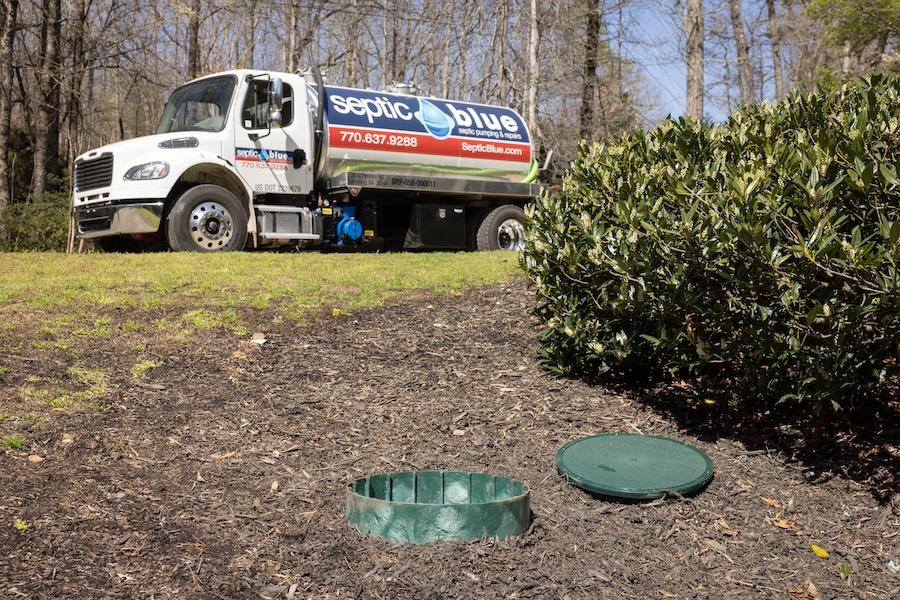Jul 21, 2024
How Soil Type Impacts Your Septic System
Septic systems are vital for managing household wastewater in areas without centralized sewer systems. The longevity and efficiency of septic systems can be guaranteed through proper maintenance and a comprehension of the various factors that influence them. Soil pH is a critical factor that is frequently disregarded.
In this blog post, our professionals from Septic Blue of Raleigh will delve into the impact of soil pH on septic system functionality, highlighting the importance of services from a septic company.
Understanding Soil pH and Its Importance
Soil pH is a measurement of the soil's acidity or alkalinity, with a range of 0 to 14, with 7 indicating neutrality. These soils are classified as acidic if their pH value is less than 7, and alkaline if their pH value is greater than 7. The biological processes within the soil, including those that are essential for the functionality of septic systems, can be substantially influenced by the pH level of the soil.
The Role of Soil pH in Septic System Functionality
Septic systems rely on a combination of physical, chemical, and biological processes to treat and dispose of household wastewater. This treatment procedure is significantly influenced by the soil surrounding the drain field. When wastewater is discharged from the septic tank into the drain field, it undergoes further treatment through filtration and microbial activity in the soil.
Soil pH can affect these processes in several ways:
- Microbial Activity: The microorganisms that break down organic matter in wastewater are sensitive to soil pH. The majority of bacteria and other microbes that contribute to the decomposition of waste flourish in neutral to slightly acidic conditions (pH 6-7). If the soil pH is too high or too low, microbial activity can be hindered, leading to inefficient wastewater treatment.
- Chemical Reactions: The solubility and mobility of nutrients and contaminants are influenced by soil pH. Certain chemicals may become more mobile in soils that are highly acidic or extremely alkaline, which could potentially contaminate groundwater.
- Soil Structure: Extreme pH levels can alter soil structure, affecting its ability to filter and retain water. Insufficient filtration and an elevated risk of system failure may result from a poor soil structure.
Signs of Soil pH-Related Septic System Issues
If your septic system is affected by unfavorable soil pH, you may notice several signs indicating potential issues:
- Slow Drainage: If wastewater is not being adequately treated in the drain field due to poor microbial activity, you may experience slow drainage in your household plumbing.
- Odors: Inefficient treatment can result in unpleasant odors emanating from the drain field or septic tank area.
- Pooling Water: Poor soil structure and filtration can cause wastewater to pool on the surface of the drain field, creating soggy areas in your yard.
Solutions to Address Soil pH Issues
To ensure optimal septic system functionality, it's essential to monitor and manage soil pH. Here are a few actions you can take:
- Soil Testing: Conducting routine soil testing can assist in determining the pH level of your soil. As part of their septic tank installation and maintenance programs, numerous septic companies provide soil testing services.
- pH Adjustment: If your soil pH is not within the optimal range, you may need to adjust it. This can be done by adding lime to raise pH or sulfur to lower pH. Consulting with a professional who specializes in septic tank repair can assist you in determining the most effective course of action.
- Regular Maintenance: Regular septic tank pumping, cleaning, and inspections by a reputable company can help identify and address potential issues before they become major problems. Maintenance is essential for the efficient operation of your septic system, regardless of the pH of the soil.
Need a Reliable Company?
Are you in need of septic tank cleaning? Luckily, we at Septic Blue of Raleigh have dedicated workers ready at your service. Contact our representatives for more questions.
